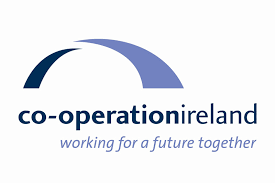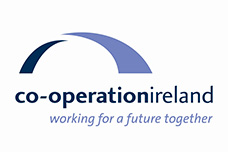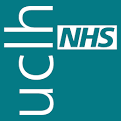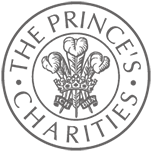Christopher Moran, Chairman of Co-operation Ireland addressed the charity’s annual gala fundraiser in the Dorchester Hotel on 3 November 2011.
You can read the full text of his speech below.
Remarks by Dr. Christopher Moran, Chairman
Secretary of State, Minister, Ladies and Gentlemen, distinguished guests, may I offer you a very warm welcome to Co-operation Ireland’s 2011 Gala Dinner.
As an organisation we’ve had many events at the Dorchester in recent years, but it’s only this year that I realised that these salubrious surroundings were once the headquarters of General Dwight D. Eisenhower during the planning of D-Day.
As it happens, despite of – or maybe because of – his humble origins, Ike acquired a taste for staying in grand surroundings, something which he managed to do in style when he was based in Northern Ireland.
He was a five star general who was used to making life and death decisions, but Eisenhower had some insightful things to say about how to build peace; thoughts which should provoke those of us who want to help Northern Ireland build a normal society.
Eisenhower said:
“I like to believe that people in the long run are going to do more to promote peace than our governments. Indeed, I think that people want peace so much that one of these days governments had better get out of the way and let them have it.”
If we take ‘Governments’ to refer to the wider political class, how much of that sentiment rang true during the 1990s in Northern Ireland, stumbling as we did from ceasefire to broken ceasefire to ceasefire, talks about talks and then agreement. That was over 14-years ago.
Since then society has changed, and changed for the better. Nowhere was that more evident than in Her Majesty’s historic visit to Ireland, hosted by President Mary McAleese.
For two nations whose history, in the words of Her Majesty the Queen, has been marked by ‘more than their fair share of heartache, turbulence and loss’ it is unsurprising that healing is a process, rather than an event.
Since their first dialogue at Crosby Hall in 2005 under the auspices of Co-operation Ireland, they have understood the impact of their relationship and how it sets the tone for the discourse between the islands. Co-operation Ireland has been integral to that delicate choreography, with events on both sides of the Irish Sea and the fields of Flanders where both the Queen and President McAleese first recognised all of the fallen Irish in the First World War.
Queen Elizabeth and President McAleese are, of course, joint patrons of Co-operation Ireland and in our view the visit has lain to rest the outstanding ghosts of history and marks a new era for Anglo-Irish relations. New relationships which are recognised by the close economic bonds between the two countries often referred to by the Chancellor, George Osborne who is at pains to point out that Ireland is a more important trading partner for Britain than India, Russia and China combined.
It is appropriate at this juncture I put on record my admiration and appreciation for the efforts of the outgoing President McAleese. She has been quite simply been outstanding and I hope that the new President Elect Michael D. Higgins will continue her good work as our patron. I would also like to pay tribute to Ambassador McDonough and his wife whose contribution to Co-operation Ireland and Anglo-Irish relations has been unstinting. Our thanks cannot be fully expressed.
I believe, however, that it was primarily a case of Government catching up with the peoples of Britain and the Republic; ordinary citizens who display one of the most cordial and close relationships of any two neighbours in Europe.
How else could one explain the genuinely warm and enthusiastic welcome which the Queen received and the many gestures of goodwill – not least the laying of wreaths at the Irish Garden of Remembrance, in recognition of those who fought for Ireland’s independence, or at the Irish National War Memorial, in recognition of those of joined the British army during WWI.
Such official displays of mutual respect set the seal on normality and starve extremists of the notional bitterness and hostility in which they hope to operate. Indeed it was gratifying and somewhat humbling to listen to Her Majesty refer to the work of Co-operation Ireland in her speech in Dublin. It was a highpoint of recognition for the charity and the people who work for it.
At the other end of the scale I was pleased to note in September that a chink of light – literally – has opened up in one of Belfast’s peace walls, which runs through a park in the north of the city. The wall – only built in 1994 – now has a door to provide access during the day. Not quite the dramatic collapse of the Berlin Wall, but a step in the right direction.
While those are positive examples of change, impediments to genuine peace remain stubbornly resistant.
Dissident Republicans may be small splinters in the spectrum of political opinion, but they still have sufficient operational capability to pose a dangerous threat to life and liberty.
At Co-operation Ireland, our Youth Leadership work is targeted towards those young people in areas of significant deprivation where they are at higher risk of being drawn by the sinister hand of violence.
Today, as we have recently witnessed in Britain, a political sense of grievance can be magnified by economic isolation making transforming attitudes in areas like Kilwilkee, Shantallow, & Taughmonagh all the more difficult.
But we are having success.
One young man who with help has turned his life around said “Before I joined the programme I didn’t like school, was taking drugs with my mates and doing things I shouldn’t be have been doing. I refused to go to school and just thought the way I was living my life was normal. Making the move and taking part in the project was the best thing that ever happened to me. I realise now I was wasting my life and that you get more out of life by working with people and helping your local community.”
It is vitally important that particularly in the current economic climate young people are not drawn back towards agitation and protest. We cannot transform Northern Ireland society by a policy of containment – we have to be in the middle of communities – reaching out and winning the battle for hearts and minds that is at the core of Co-operation Ireland’s work.
Co-operation Ireland is having an impact but to properly treat the symptom of sectarianism Northern Ireland needs to cure its disease of division. I don’t need to rehash the statistics, but people still feel more comfortable living and socialising in their own areas, educating their children in separate schools and pursuing cultural activities which have a history of excluding the other community.
That is not a normal society, nor is it a healthy one. It is a society which, if left unchecked, has the potential to bequeath the problems of the past upon future generations – a case of the sins of the fathers being visited upon their sons.
I detect, however, that there is a groundswell of opinion emerging in Northern Ireland which is not content to live with this ‘silo thinking’. In Ike’s parlance Government may have to “get out of the way” and let the people have it.
There are any number of apocryphal tales about how Northern Ireland’s two communities used to share a great deal in common before 1969 and the outbreak of the Troubles. Not only did they occupy shared spaces in much greater numbers, they also mixed and interacted as one would expect anywhere else.
Interestingly though, the online publication of the 1901 and 1911 census data is also beginning to reveal that prior to the turmoil and upheaval caused by partition and the breakup of the United Kingdom as it was then, society in the North of Ireland was more mixed than one would imagine.
For instance, Belfast’s shipyards are often held up as great examples of segregation and exclusion. Indeed, one of the wilder urban myths involved Titanic, which was said to have been given the Board of Trade’s registration number 390904; when read backwards in the water’s reflection it would spell ‘No Pope’. There is no truth in that whatsoever, not even the number is correct. If anything, Lord Pirrie, Harland & Wolff’s Chairman, was sympathetic towards Home Rule and a well known Liberal.
I am not going to claim for one minute that employment practices in Belfast at the turn of the 19th century should be help up as a beacon of equity and fair play, but new research of the 1911 census is revealing not just a more mixed workforce, but a workforce which lived cheek by jowl in rented accommodation. There were also a surprising number of Presbyterian Irish speakers.
After the turmoil of Home Rule and the ensuing Troubles which followed the end of the First World War, all that, of course, changed. Likewise, history repeated itself 50 years later with the shock of 1969 and the ensuing chaos, particularly during the 70s right through to the early 90’s, driving communities apart.
Apart from the inherent instability such division brings, it also comes with a price tag estimated in the region of £1.5bn annually, providing a duplication of services and additional security measures – quite a price for a region with the same population as Hampshire. A small percentage of that sum spent over a period of 5 years would help enormously to eventually bring about an integrated normalised society and with it, peace and prosperity.
The Prime Minister put it succinctly when he said people in Northern Ireland ‘needed a shared future – not a shared-out future’. In these difficult financial times, taxpayers in Northern Ireland would tend to agree with him and conclude that enough is enough.
We in Co-operation Ireland want to meet the Prime Minister’s challenge because we are about doing – not just talking.
Though no one could doubt the commitment of the political leadership shown by the Office of First and Deputy First Minister and the leaders of the other political parties.
Some have been less enthusiastic about tackling the problem. This is a difficult issue which, while offering much upon a successful conclusion, will involve a great deal of pain, difficult decisions and probably, upfront restructuring costs. We believe its time to step forward together. To that end it would be remiss of me not to mention the work of the Secretary of State for Northern Ireland. Owen has been a champion for NI at the Cabinet table and has been to the forefront of efforts to change the perception of Northern Ireland both from within and without, particularly on the economic possibilities.
However, for people to live in a shared society, they must want to live in a shared society – a process that I believe that is now underway. It must be an organic process based on thousands of individual decisions to see beyond their past and into the future. And while many want change, many are still trapped by fears created in their recent history.
Co-operation Ireland can help communities prepare the way for these changes and overcome their fears. Our programmes and projects allow people to break down barriers in their own communities, remove the stigma of difference from others, and believe that they don’t have to be prisoners of the past.
Co-operation Ireland’s work is also about enabling and empowering communities to transform themselves. One of our flagship programmes, ‘Pride of Place’ is an all-island competition which celebrates local communities who foster and create civic pride in their area. We can see how through embedded leadership and collective effort communities can be healed and transformed for the benefit of everyone.
From mother & toddlers groups to academic conferences people are engaged and enthused about peace and reconciliation. Our cross-community and cross-border projects are targeted at helping people learn about each others’ cultures and traditions, and learn to respect one another.
Co-operation Ireland receives funding from the British and Irish Governments, the EU and US. Government, and I am delighted to see those bodies represented here tonight. My appeal to them, is that despite these difficult economic times that they can find funding for Co-operation Ireland’s work on a scale which will allow us to have a more meaningful effect.
But their support is only part of our story. All of you present here tonight are also part of Co-operation Ireland’s work. We need both your moral and financial support because every pound you raise here helps us lever funds from other sources so tonight your support is critical.
If we can nurture the desire for change at a community level, if we can continue to invest in young people and emerging leaders, and combine grassroots work with decisive action by Government to support a genuinely shared society, Northern Ireland can accelerate its return to normality.
Only then we can write the concluding paragraphs of the island’s modern-day quest for peace.
Thank you.






